Alert+
Evacuations from High-Risk Locations Call +44 (0)1202 308810 or Contact Us →
Nationwide Protests in Kenya
Intelligence cut off: 15:00 BST 25 JUNE 2025
Demonstrations and clashes with security forces broke out on 25 June in multiple cities in Kenya. The protests, which initially began in Nairobi, have now expanded to other cities including Mombasa, Kisumu, Nakuru and Nyahururu. According to Citizen TV, protests are also taking place in Eldoret, Kakamega, Narok, Busia, Makueni, Nyeri, Laikipia, Nyandarua, Machakos, Homa Bay, and Kirinyaga. Demonstrations are reportedly taking place in at least 20 of the country’s 47 counties. While precise numbers are unconfirmed, thousands of demonstrators have taken to the streets.
In Nairobi, large crowds have occupied parts of the Thika Road highway, and protesters have blocked streets in the Zimmerman area. Demonstrators are reportedly heading towards the city centre, highly likely aiming to reach the parliament. Security forces have deployed tear gas and water cannons to disperse the crowds, particularly in the central business district and outside the city hall. One protester in the capital city was reported to be injured after being struck on the head by a tear gas canister and at least eight people have been shot, according to local news.
Reports from Matuu in Machakos County and Molo in Nakuru County indicate that police have opened fire on protesters, resulting in at least two deaths and several injuries in both locations. Eyewitnesses in Matuu claim that the violence occurred when protesters attempted to enter a police station.
The unrest has led to significant disruptions. Kenya Railways announced the suspension of commuter trains in Nairobi due to the ongoing protests. Additionally, the Kenyan government has taken steps to control the flow of information, with the Communications Authority ordering TV and radio stations to cease live broadcasts of the demonstrations.
Local NTV and KTN stations report that security forces raided their transmission centres and turned off their signals. NetBlocks has reported disruptions to the Telegram messaging service across Kenya, following a government ban on media platforms covering the protests live. Multi-media organisation The Standard Group has declared that it will continue to broadcast despite the attempted ‘news blackout’.
Opposition leaders Kalonzo Musyoka and Eugene Wamalwa have joined demonstrators in Nairobi, laying wreaths outside parliament in honour of those killed during demonstrations last year which killed an assessed 60 people. Former Chief Justice David Maraga is also taking part in the protests. They have called on police to exercise restraint and have condemned police brutality.
SITUATION ANALYSIS
Kenya Protest Unrest Escalates Amid Police Brutality and Travel Risk Concerns
Sporadic protests have been ongoing in Kenya since 9 June, after blogger Albert Ojwang died in police custody the previous day after being arrested for the alleged defamation of the Deputy Inspector General of Police. As protests escalated, the Kenyan National Police also released a statement confirming that a woman miscarried whilst in police custody at Rwanyambo police station in Nyandarua County. On 12 June, the government announced a new finance bill, the trigger for the 2024 protests, although the 2025 iteration was far more conservative.
Protests will likely continue to escalate. On 17 June, the most violent day of unrest before today, a large group of unidentified individuals on motorcycles arrived in the Central Business District in Nairobi armed with makeshift weapons, including whips and clubs, and Kenyan police forces shot a bystander who had been selling face masks with an anti-riot shotgun at point-blank range in the head. There is a realistic possibility that the allegedly pro-government individuals could once again target protesters, which would almost certainly inflame tensions.
These protests constitute the most significant demonstrations since the June-August 2024 protests triggered by the government finance bill. The 2024 protests saw a harsh response from security forces, who were accused of abducting, torturing, and killing civilians believed to be leaders of anti-government protests. At least 60 protesters were killed in total.
The continued perceived harsh repression of demonstrations by security forces, as well as the harming of civilians in custody, has significantly exacerbated tensions, and further footage of security forces using excessive force will almost certainly contribute to demonstrations spreading further.
Today’s date, 25 June, marks the first anniversary of the 2024 storming of parliament. Protesters will likely target the parliament again due to its symbolic value, although there is a heavy security presence around the building, and it has been barricaded with razor wire to prevent protesters from entering.
Despite the introduction of a new finance bill being the trigger for the 2024 protests, it is likely the least contributing factor in this wave of demonstrations. The 2024 finance bill aimed to raise 346 billion Kenyan shillings to pay off the country’s high debt by massively increasing taxes on consumers, such as value-added tax (VAT). Amidst a rising cost of living and inflation, this would have added significant economic pressure on ordinary Kenyans, triggering widespread youth-led protests.
The current wave of unrest, on the other hand, is largely directed towards police brutality, with protesters demanding justice and the resignation of a senior officer they blame for the death of Ojwang, likely suggesting that sustained police brutality and a lack of accountability will continue to sustain violent unrest.
The presence of prominent opposition figures will almost certainly add pressure on President William Ruto, who has seen multiple bouts of unrest since attaining power in 2022. There is a realistic possibility that protests will continue to escalate until Ruto steps down.


Intelligence Team’s Advice: Guidance During Protests
- Avoid all non-essential travel to Kenya, particularly Nairobi, Mombasa, and Matuu.
- Avoid the central business district in Nairobi, particularly around Kenyatta Avenue, Haile Selassie Avenue, City Hall, and any other wide roads conducive to the staging of protests, as well as all major government buildings such as the Kenyan Parliament or the Governor’s Office.
- Closely monitor announcements from local authorities and media sources for any developments that may severely impact the local security environment.
- Avoid all areas of unrest due to incidental risks to bystanders. If caught in the unrest, travellers should move with the crowd until they find the nearest opportunity to escape. If in a vehicle, look to turn down the nearest road. If driving away is not an option, lock the vehicle and escape on foot.
- Always follow all instructions and orders from security forces. Where possible, avoid areas of active unrest and remain in a secure accommodation.
- Prolonged civil unrest can disrupt travel, especially if protesters begin targeting airports. Travellers should have contingency measures in place, including evacuation plans and reliable access to food, water and medication.
- Have emergency contact numbers saved on your phone. These should include the local authorities, medical facilities and any consular support. Ensure that mobile phones are charged in case of any losses in electricity.
- If caught in the vicinity of a security incident, seek shelter immediately and leave the area if safe to do so. Continue to adhere to all instructions issued by authorities and obey any security cordons in place.
- The overall security situation in Kenya, including Nairobi, is likely to remain severe in the coming days.
- Monitor the Solace Secure platform and trusted local media for updates relevant to the conflict.

Brussels Metro Shooting Triggers Security Lockdown Across City
Intelligence cut off: 12:00 GMT 05 February 2025
On the morning of 5 February at approximately 06:15 local time, at least two individuals armed with Kalashnikov-style rifles opened fire at the entrance of the Clémenceau Metro station, located to the southwest of Brussels’ city centre. No injuries were reported during the shooting as of the time of writing, and suspects then reportedly fled inside the metro tunnel network. CCTV images captured the shooting, showing two people firing multiple bursts at an unidentified target.
As of the time of writing, the suspects remain at large. Belgian authorities have shut down Clémenceau station, as well as the nearby Brussels-Midi station, which serves as the terminal for the Eurostar train. Metro lines 2 and 6 have been shut down between Troon and Weststation, tram lines 4 and 10 have been interrupted between Noordstation and Churchill, and trams 51 and 82 have been interrupted between Anderlechtsepoort and Zuidstation.
Authorities have advised commuters to use alternative metro lines but have so far ruled out a complete shutdown of the metro system. Authorities have likewise created a response post at the Anderlecht town hall, located west of Brussels.
INTELLIGENCE ANALYSIS
Major Traffic Disruptions Expected After Brussels Metro Attack
The shooting is likely linked to local organised crime. The Brussels-Midi area is a hotspot for drug dealing and other forms of crime. The timing of the attack may suggest it was primarily meant as intimidation. There are currently no indications that the shootings are linked to terrorism.
The shooting is highly likely to result in severe traffic disruptions throughout Brussels, and an increase in the deployment of security personnel to the city, particularly affecting the city centre and other high-traffic areas. Roadblocks will likely be set up by authorities on the main roadways in and near Brussels, including the E19, E40, E411, E429, and the ring road R0. Increased security presence near Brussels International Airport is also likely and may affect travellers arriving to Belgium or leaving the country.
Transport disruptions are highly likely to continue throughout 5 February. Eurostar services are likely to be delayed throughout the day.
Travel Risk Advice: Safety Guidelines for Brussels, Belguim
- If near Clémenceau Metro station, leave the area. Shelter in place until authorities issue an all clear.
- Closely monitor local news reports and government alerts.
- Monitor the X page of the Brussels Intercommunal Transport Company (STIB/MIVB) for updates.
- If in the event you become caught in the vicinity of an attack you are reminded to RUN – HIDE – TELL.
- If caught in the vicinity of an armed attack, seek immediate hard cover from any incoming gunfire or explosions and leave the area if safe to do so. Continue to adhere to all instructions issued by authorities and obey any security cordons in place.
- Further attacks cannot be ruled out as this attack may be part of a series of planned attacks. Remain vigilant over the coming days and avoid large gatherings, public buildings, transport hubs and military infrastructure where possible.
- Expect and plan for extensive transportation disruptions in Brussels.
- It is highly likely over the coming days that there will be an increased security presence across Brussels. Adhere to all instructions issued by authorities.
- Ensure that you always carry personal identification documents or copies.
- Have emergency contact numbers saved on your phone. These should include the local authorities, medical facilities and any consular support. Ensure that mobile phones are charged in case of any losses in electricity.
- Monitor the Solace Secure platform and trusted local media for updates relevant to the conflict.
Subscribe to free weekly intelligence

Rwanda Accused of Aiding M23 Rebels as Goma Falls to Rebel Forces
Intelligence cut off: 11:00 GMT 27 January 2025
At approximately 02:45 local time on 27 January, media spokespersons for the March 23 Movement (M23) rebel group announced via a press release that their forces had successfully seized Goma, the capital of North Kivu Province in the eastern Democratic Republic of the Congo (DRC). Hours earlier, local media reported gunfire in the city’s outskirts, as M23 forces clashed with the Congolese Armed Forces (FARDC) following their capture of the nearby town of Sake.
Unconfirmed sources indicate that Rwandan forces crossed the border to assist the rebels in seizing Goma. Rwandan and Congolese forces have also reportedly fired at each other across the shared border.
Rwandan soldiers claim that 26 Congolese soldiers and one police officer crossed into Rwanda and surrendered. While the DRC-Rwanda border is reportedly officially still open, border clashes almost certainly prevent any movement.
On 25 January, the DRC severed diplomatic relations with Rwanda, long accused of supporting the M23 movement, and recalled its embassy staff from the country. The following day, on 26 January, the United Nations Security Council (UNSC) held an emergency session as the rebels advanced toward Goma. During the session, Congolese Foreign Minister Thérèse Wagner accused Rwanda of actions amounting to a “declaration of war“.
The extent of casualties and damage from the M23 offensive remains unclear. In the week preceding the Goma offensive, both M23 and Rwanda faced international condemnation after rebel forces killed 13 United Nations (UN) peacekeepers. M23-affiliated media later released footage showing FARDC soldiers tasked with defending Goma being disarmed and detained under UN peacekeepers’ supervision.
On 26 January, local media reported that hundreds of residents began fleeing Goma after news of M23’s capture of Sake. In recent weeks, M23 has seized key strategic towns, including Katale, Masisi, and Minova, in their advance toward Goma. On 27 January, a mass jailbreak reportedly occurred in Goma, hours after M23 entered the city. The prison held approximately 3,000 inmates and was set on fire during the prisoners’ escape. Deaths were reported, but no official figures have been released.
Goma international airport has been evacuated and has temporarily grounded flights due to the ongoing clashes.
Amid escalating tensions, Kenyan President William Ruto announced on the social media platform X that the East African Community (EAC) will convene an extraordinary summit within 48 hours. DRC president Felix Tshisekedi and Rwandan president Paul Kagame are both set to attend the summit. Ruto stated that the summit will aim to negotiate a ceasefire between M23 and the Congolese government while addressing long-standing tensions between the DRC and Rwanda.
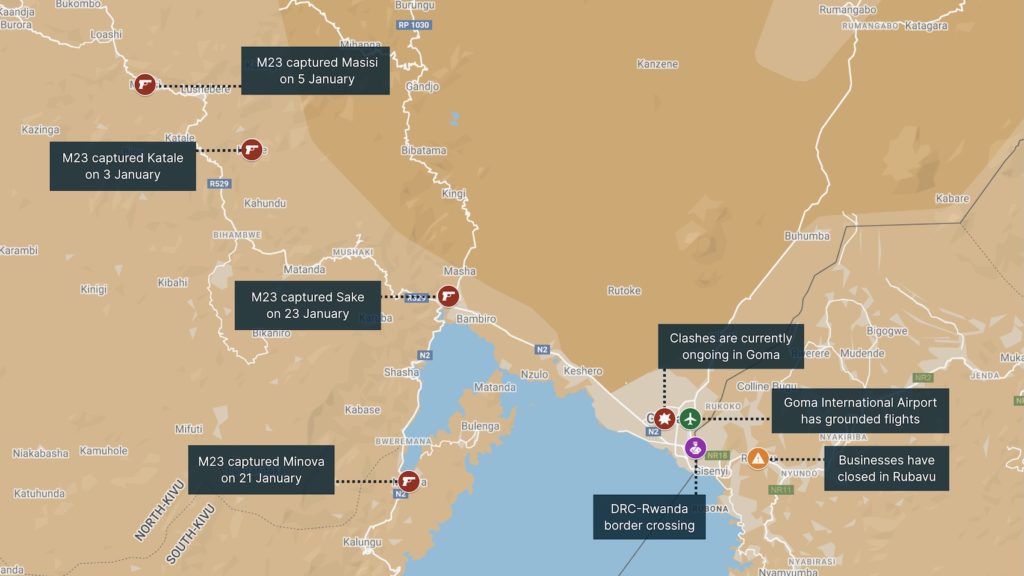
INTELLIGENCE ANALYSIS
Goma Crisis Deepens: M23 Offensive and the Impact on DRC-Rwanda Relations
Goma is a strategically significant city, rich in natural resources such as gold and cobalt, which represent critical economic interests for both the DRC and Rwanda. The alleged seizure of Goma by the M23 rebels follows weeks of captures of nearby towns and evacuations of civilians. Despite M23 claims that the city has been captured, there is a realistic possibility that it remains contested due to uncorroborated reports that fighting is still ongoing.
Despite recent conflict, the origins of instability in Goma trace back to the early 1990s. The conflict is deeply tied to regional ethnic tensions. Following the 1994 Rwandan Genocide, which killed at least 800,000 Tutsis and moderate Hutus, over two million Hutus, including genocidal forces like the Interahamwe militia and the former Rwandan army (FAR), fled to the DRC. They established camps near Goma and launched cross-border attacks on Rwanda.
Rwanda intervened militarily in the DRC, leading to the First (1996-1997) and Second (1998-2003) Congo Wars. These wars drew in multiple nations and militias, leaving eastern DRC destabilised. The M23 rebel group emerged, primarily consisting of Tutsi defectors from the Congolese army. They seized Goma in 2012 and held it for two weeks, citing ethnic discrimination. Their alleged ties to Rwanda added further complexity to the conflict.
The fall of North Kivu’s capital and largest city is almost certain to trigger anti-government and anti-UN protests in Kinshasa and other major cities across the DRC. The rapid gains of the M23 offensive are likely to heighten criticism of the government’s handling of the crisis and the effectiveness of the UN’s role in the region. Such developments have historically led to widespread unrest and are often met with heavy-handed responses by Congolese security forces. The US Embassy in Kinshasa has issued a warning to travellers, anticipating significant protests in the capital on 27 January.
Travellers are strongly advised to stay clear of government buildings, foreign embassies, and UN-affiliated sites, as these are highly likely to become focal points for protests and violence. Protests are likely to be anti-Western in sentiment.
Widespread dissatisfaction over President Tshisekedi’s handling of the conflict additionally heightens the risk of political upheaval or attempts to overthrow his administration. In addition to the crisis in North Kivu, Tshisekedi’s presidency has been marred by controversies surrounding the 2023 presidential election and delays in the originally scheduled 2024 parliamentary elections.
Such controversies were ultimately viewed as triggers for a failed coup attempt in May 2024, marked by intense fighting near the presidential residence, Palais de la Nation, which left six people dead. The perceived weakness of Tshisekedi’s government heightens the risk of further coup attempts.
Tensions between DRC and Rwanda are likely to remain high during this period. Given previous wars were triggered by conflict in North Kivu, international actors will almost certainly attempt to prevent any further escalation. There is a realistic possibility that if tensions are not significantly reduced, the situation could escalate into a regional conflict.
Travel Risk Advice: Safety Guidelines Amid Rising Tensions in the DRC
- Closely monitor local news reports and government alerts.
- Avoid all non-essential travel to the DRC, particularly the eastern regions of North and South Kivu.
- Avoid all military installations, government buildings, and key infrastructure.
- Civil unrest and demonstrations are likely throughout the DRC. Travellers are advised to avoid all areas of unrest. Protests are likely in Kinshasa in front of government buildings, foreign embassies, and UN-affiliated sites.
- Adhere to all instructions issued by authorities.
- Ensure that you contact and register with your local embassy or consulate if stuck within DRC.
- The security situation in the DRC is likely to remain highly unstable in the coming weeks with the severance of diplomatic relations and involvement of regional armed forces, particularly in eastern DRC. There is a realistic possibility of ethnic tensions within the DRC.
- Evacuations and internal displacement will almost certainly lead to widespread travel disruption and congestion on major roads. Ensure vehicles are fuelled, consider alternative routes, and ensure that vehicles are loaded with additional fuel, water, food and other critical supplies.
- Confirm booked flights are running prior to checking out of hotels or travelling to the airport.
- Have emergency contact numbers saved on your phone. These should include the local authorities, medical facilities, and any consular support. Ensure that mobile phones are charged in case of any losses in electricity.
- Monitor the Solace Secure platform and trusted local media for updates relevant to the conflict.
Subscribe to free weekly intelligence

Military Coup in Gabon August 2023
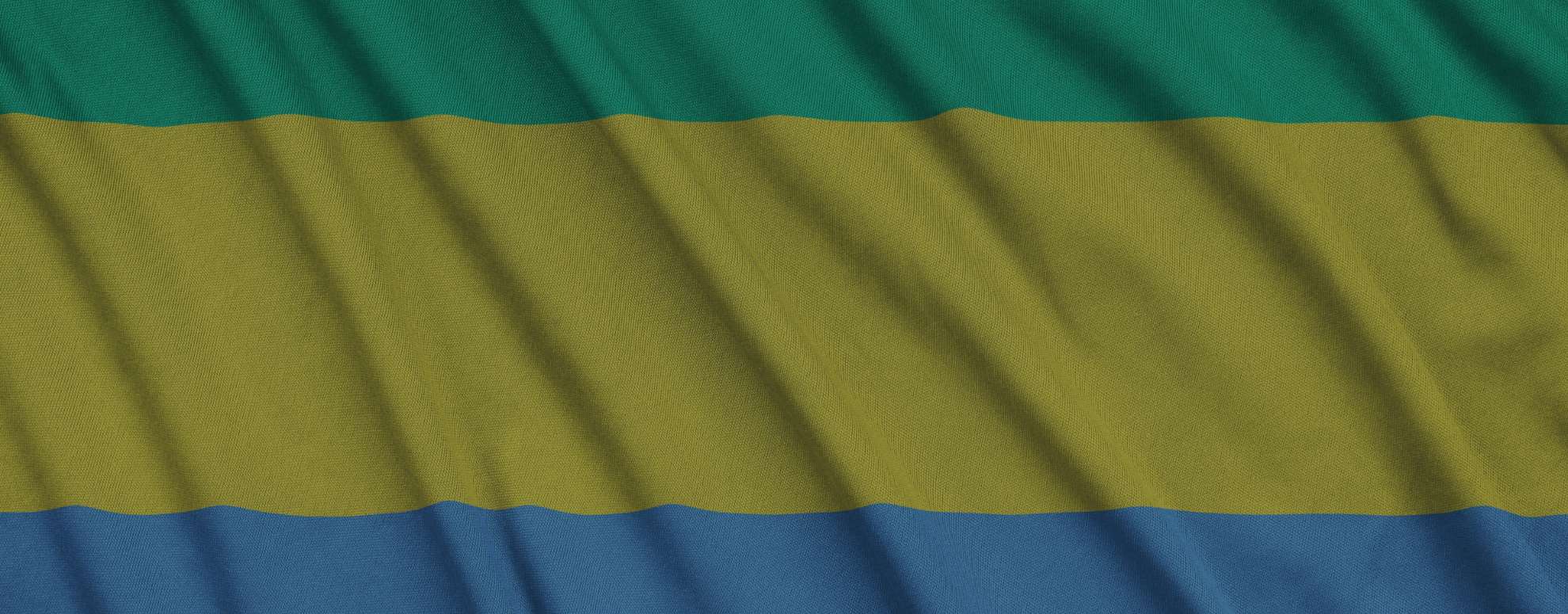
Summary of Military Coup in Gabon
In the early hours of 30 August, the Gabonese Election Centre (CGE) announced that President Ali Bongo had won a third term in office, having received 64.27 percent vote share in Saturday’s general election. However, just after 05:00 local time, a group of senior officers from the Gabonese military announced on television channel, Gabon 24, that they had seized power with the full support of the Gabonese security and defence forces.
Introducing themselves as members of The Committee of Transition and the Restoration of Institutions, the officials stated that the election results were cancelled, all borders were closed until further notice and state institutions – the government, the senate, the national assembly, the constitutional court and the election body – were dissolved.
Following the announcement, domestic and regional sources reported gunfire could be heard in the capital Libreville. However, as the day progressed, the streets appeared calm, and crowds of citizens peacefully took to the streets. Videos circulating on social media showed multiple instances of people celebrating and cheering, often in close proximity to the country’s armed forces. So far, there has been no signs of widespread protest or alarm. Several hours after the officers’ announcement, internet access also appeared to be restored for the first time since Saturday’s vote.
The Gabonese government has yet to make an official statement, with President Bongo reportedly under house arrest, surrounded by his family and doctors.
Potential for Political Unrest in Gabon
Ahead of the coup, there was significant concern over potential unrest following Saturday’s presidential, parliamentary and legislative elections that the opposition alleged were plagued by fraud. Questions over the election’s transparency were re-enforced by the lack of international observers, the suspension of foreign media broadcasts, the decision to cut internet service, and the imposing of a nationwide curfew.
President Ali Bongo and his father, Omar Bongo, have ruled Gabon since 1967, but frustrations with the political dynasty had been growing for several years ahead of Saturday’s election. The Central African nation is a major oil producer, so much so that it is a member of OPEC, as well as being a major exporter of uranium and magnesium. Indeed, the country is home to over one-quarter of the world’s proven magnesium reserves. However, Bongo has done little to channel its oil and other wealth towards the population of some 2.3 million people, a third of whom live in poverty.
This is also not the first attempt in recent history to overthrow Bongo as in January 2019 he and the Gabonese government were able to foil an attempted military coup after soldiers briefly seized the state radio station and broadcasted a message saying Bongo, who had suffered a stroke months earlier, was no longer fit for office.
Find further analysis on political instability in West Africa
Situation Analysis by Solace Global
The strength of Gabon’s extractive-based economy means that it is Africa’s third most wealthy country by GDP per capita. However, with large swathes of the country still living in poverty, it is highly likely that the state has failed to transfer much of this wealth to ordinary citizens. It is likely that economic disparities have been one of the major triggers for the coup. This is likely supported by the lack of public resistance and the fact that celebrations have been seen on the streets of Libreville and other major population centres across the country.
Furthermore, the coup has yet to be characterised by anti-French rhetoric in a similar vein to the recent West and Central African coups in countries like Niger and Mali. However, the coup is almost certainly another problem for Paris in Africa, with multiple French companies operating in the country. Unlike the other coups in Africa, it is doubtful that the Gabonese coup leaders will seek Russian support in favour of maintaining Western relations. Gabon has traditionally had weak ties with Russia and unlike much of Africa, has not been threatened with major insurgencies and security issues. Moreover, Gabon was one of the countries in Africa that voted against Russia at the United Nations in the 2022 resolution on Ukraine.
Economically, the coup is almost certainly going to lead to price volatility in global oil and magnesium markets. Gabon has strong economic links with both France, and increasingly with China, and it is a major exporter of commodities to these nations. Reports indicate that some foreign companies like the French mining company, Eramet, have already suspended operations in Gabon in response to the coup. It is therefore highly likely that both France and China will be looking for the political situation to be resolved quickly, and there is a realistic possibility of diplomatic involvement from both Paris and Beijing.
In the immediate future, it is unlikely that any major protests or armed clashes will break out as the Gabonese security forces are seemingly onside, and most indications suggest the public is too. The turning on of the internet was likely a move to win over the public as well as signal a different approach to governance than the Bongo regime. However, this also presents an increased potential for demonstrations and protests, both in favour and against the coup, to occur as information is spread on social media. There is a realistic possibility of sustained demonstrations which will likely lead to disruption in major population hubs. Borders will likely remain closed for upcoming days, but if scenes remain calm, borders are likely to reopen quicker than seen in Niger and Mali.
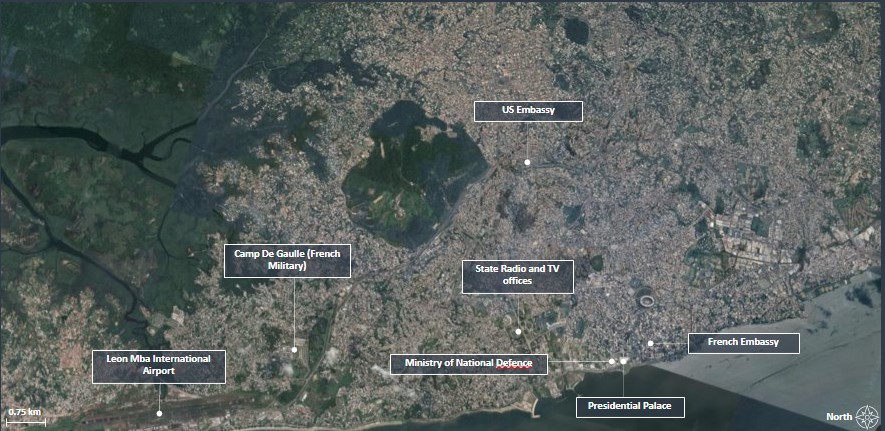
Advice for travellers affected in Gabon
- Although the coup appears to be relatively peaceful, widespread unrest and violence could ignite at any time. Travellers should avoid all ongoing military activity and any large public gatherings as the security situation may deteriorate quickly and without warning.
- In the event of significant security development, travellers in Gabon should follow any instructions issued by the government or military authorities. If a curfew is declared it is vital to abide by the curfew rules to avoid any conflicts with security forces.
- If violence escalates inside the capital, consider departing from Libreville whilst commercial options are still available.
- Key military and political infrastructure inside the capital are very likely to remain focal points for violence and demonstrations. You should be particularly vigilant in these areas and follow any specific advice from the local security authorities.
- Expect significant travel disruption and an enhanced security force posture inside Libreville in the short-term. Should any opposition movement to the coup materialise, it is likely that flights will be suspended, and roadblocks or vehicle checkpoints will be established.
- Always follow all instructions and orders from security forces. Where possible, avoid areas of active conflict and remain inside a secure location away from windows.
- Ensure that you always carry personal identification documents. Consider making photocopies of important documents in case of confiscation, theft or loss and keep these documents separated from the originals.
- Emergency services may be unable to support you in the short-term. Be aware of what consular support may be available to you in-country. Many countries do not provide direct consular support in Gabon. The UK’s consular services for Gabon are based in Yaoundé, Cameroon.
- Have emergency contact numbers saved on your phone. These should include the local authorities, medical facilities and any consular support. Ensure that mobile phones are charged in case of any losses in electricity.
- If caught in the vicinity of a security incident, seek shelter immediately and leave the area if safe to do so. Continue to adhere to all instructions issued by authorities and obey any security cordons in place.
- Monitor the Solace Secure platform and trusted local media for updates relevant to the coup.
Stay ahead of global events with free weekly intelligence
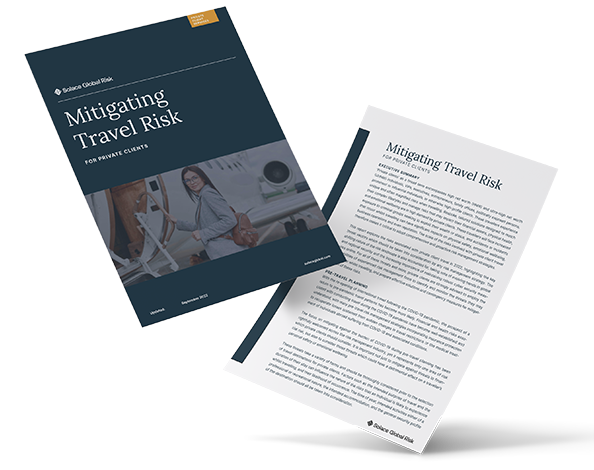
Attempted coup in Niger July 2023
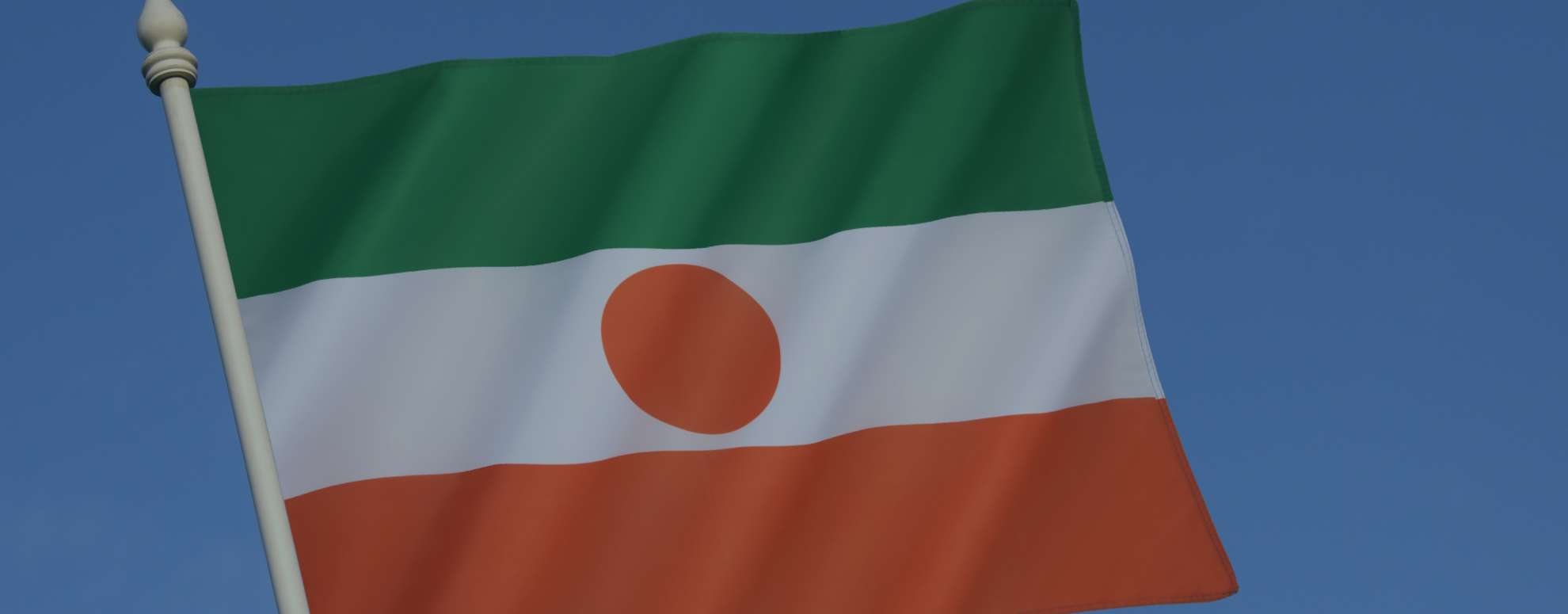
Summary of Attempted Coup in Niger
On the morning of 26 July, multiple domestic and regional sources reported that a potential coup was underway in Niamey, Niger. Early indications suggested that the Presidential Guard had blocked the entrance to the Presidential Palace, and detained President Mohamed Bazoum. Concurrently, government ministries next to the palace were blockaded, with those inside, including the Minister of the Interior, detained.
By early afternoon, the Niger Armed Forces (FAN) and National Guard had both deployed in the vicinity of the Presidential Palace. The FAN and the Presidential office both released statements asserting that the ongoing coup attempt was being driven by “anti-republican” elements and gave the Presidential Guard an “ultimatum” to stand down and release President Bazoum, or face being attacked. Unverified social media reports have subsequently described armoured FAN columns entering Niamey. Further unverified reports later emerged of roadblocks appearing across the city.
The conditions in Niamey remained calm initially, however, as the situation developed businesses were reputedly told to close and residents were ordered to stay at home. Operations at Diori Hamani International Airport currently remain unaffected, with flight tracking data showing that both inbound and outbound flights were operating as normal.
Recent Instability in Western Africa
Since 2020, several coups have taken place across the Sahel region, most notably in neighbouring Mali and Burkina Faso. The key driver for instability has been the inability of central governments to guarantee internal security from a myriad of insurgencies and terrorist actors. Niger has been increasingly afflicted by the instability affecting the wider region. In the southeast, Niger is battling incursions from Boko Haram and in the west of the country, the government is attempting to contain threats from Islamic State’s Sahel Province.
Due to the external and internal threats posed by these actors, Niger has become a major operating base for Western nations in the region. Indeed, both France and the USA utilise the country as a base for operations in the wider Sahel.
This relationship has grown in significance for Western governments as relations with other states in the region, such as Mali and Burkina Faso, have broken down in the wake of their own respective coups, leading to the expulsion of French forces.
Further strengthening this relationship is the fact that Niger’s President was democratically elected in 2021 and is one of the region’s few remaining democratically elected heads of state. However, in February 2023 protests erupted in the capital, Niamey, with demonstrators expressing their dissatisfaction with a sustained French military presence in the country, with many believing that the foreign presence was either ineffective or had exacerbated security concerns.
Find further analysis on political instability in West Africa
Situation Analysis by Solace Global
At the time of writing, there has been no official statement from Presidential Guard. However, given the recent regional trends, it is highly likely that this attempted coup has transpired due to concerns regarding the deteriorating security of Niger.
This is further evidenced by the fact that the Presidential Guard has also apprehended the Minister of the Interior, who is the person ultimately responsible for policing and internal security in Niger. The recent uptick in attacks near the borders with Burkina Faso and Mali likely provided the catalyst for the current situation.
As the situation develops, it is almost certain that key transport routes and critical locations across Niamey will be seized by rival forces. This will include Niamey’s key river crossings, which connect the main part of the city on the eastern bank of the Niger River to its western parts, the international airport, and state TV and radio offices. At the time of writing, it is believed that President Mohamed Bazoum remains in detention.
The success of the ongoing attempted coup remains to be seen. Initial signs suggest that the FAN and National Guard have remained loyal to President Bazoum and are willing to fight. If this remains the case, it is unlikely that the coup succeeds due to the disparity in military firepower between the two sides. This result would ultimately see the Presidential Guard purged.
However, should the coup succeed, civil unrest, both in favour and against, will highly likely occur. A transitional military council will likely take over the government and immediately revise the stationing of foreign militaries in Niger. The removal of the last remaining Western forces in the region will likely create a security vacuum, that will almost certainly benefit the insurgencies and terrorist groups in Niger and the wider region.
Stay ahead of global events with free weekly intelligence

Election violence in Kenya

Situation Summary of Election Violence in Kenya
On 15 August, violence erupted at the Bomas of Kenya in Nairobi, as the Independent Electoral and Boundaries Commission (IEBC) had been scheduled to release the results of the Kenyan general election. Live footage from the venue showed physical altercations breaking out between attendees, with military
personnel intervening to break up the violence.
Earlier on 15 August the IEBC had announced a delay in releasing the results, although did not specify a reason for the delay. Separately, four commissioners of the IEBC held a press conference at the Serena Hotel in Nairobi, in which they stated that they could not “take ownership of the results” due to concerns over their opaqueness. As the violent scenes emerged and news broke of the division within the IEBC, it
was announced that riot police across the country had been placed on standby, with Kenya’s highest bishop calling for calm and peace to prevail.
In the days since the 9 August election, the IEBC has been verifying the vote tallies provided by the country’s polling stations. In this interim period, both main presidential candidates have alluded to voting irregularities and of fighting the result in courts. Meanwhile, the delay between voting and the announcement of a result had only led to further speculation and disinformation around the legitimacy
of the vote.
Around 20 minutes after the initial chaotic scenes at the Bomas of Kenya, and despite four of the seven IEBC commissioners stating they could not back the results, the IEBC announced that William Ruto had won the election with 7,176,141 votes – amounting to 50.49 percent of the total valid votes. The pre-election favourite, Raila Odinga, received 6,942,930 votes – representing 48.85 percent of the votes cast.
Solace Global Comment
In 2007, post election violence resulted in more than 1,500 civilian deaths, whilst in 2017 at least fifty were killed and the election result was seen as so contentious that the country’s Supreme court ruled the vote should be re-run. Odinga has run for president on five occasions and has lost each time he has run.
He has also disputed the final election result following each loss, which set the conditions of suspicion and mistrust, and ultimately precipitated previous outbreaks of post-election violence. Given that Odinga was seen as the favourite to win the Presidency during the 2022 election, the closeness of the declared result and the inconsistency from the IEBC on 15 August, it is highly likely that he will once more
attempt to contest the election results.
Regardless of whether Odinga officially disputes the result, it is highly likely that his supporters will rally against the result. Any such unrest is highly likely to become violent. The city of Kisumu, which is home to a large pro-Odinga voting bloc, has already begun to see protests break out against alleged vote rigging, whilst in the Kibera area of Nairobi there are reports that riots have begun to break out. Further
unrest is likely to remain centred on the political centres of gravity in Nairobi, with the State House, Central Business District, and Serena Hotel all probable areas of unrest in the short term.
It is noteworthy that this was the first election in which there was no candidate from Kenya’s largest tribe, the Kikuyu. As a result, if election violence and unrest begins to spread across the country, there is a realistic possibility that it will avoid the traditional split along ethnic and tribal lines. Consequently, post-election violence may occur more widely across Kenya, as it would not be centred on tribal population centres, although it may be less extreme than levels observed during previous elections in which a Kikuyu candidate was participating.
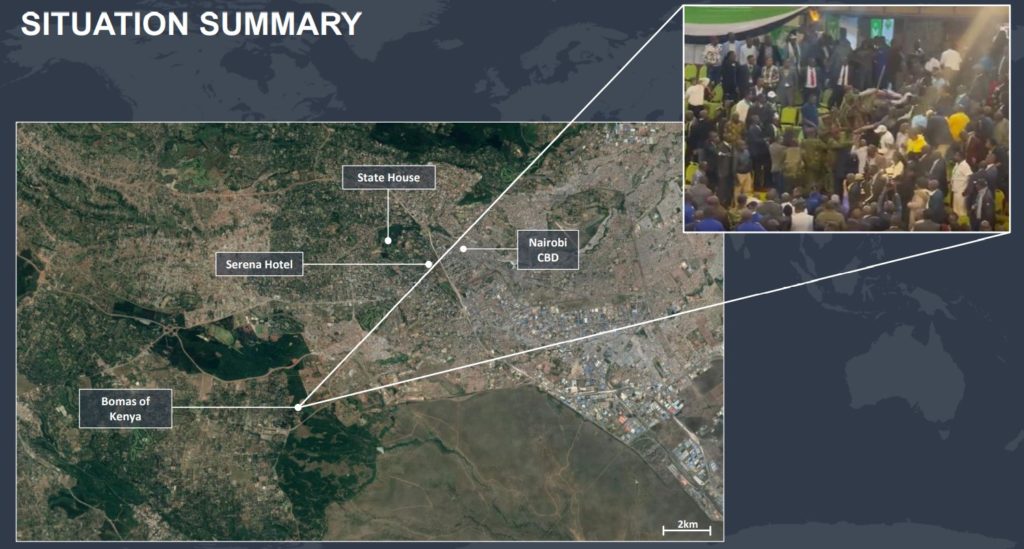
Solace Global Advice
• Widespread unrest and violence remains possible in the short term. Travellers should avoid all demonstrations and large public gatherings as they may escalate quickly and without warning. Immediately vacate the area if caught in unrest.
• In the event of a significant security development, travellers in Kenya should follow any instructions issued by the Kenyan government or local authorities.
• Areas where political figures are known to gather are likely to be focal points for political activism and unrest, especially sites associated with the Presidential office or known protest hotspots. You should be particularly vigilant in these areas and follow any specific advice from the local security authorities.
• Expect localised travel disruption and an enhanced security force posture in the short-term. Allow for additional time when travelling in-country, as protest action and increased security force presence may result in road closures or blockades.
• Ensure that you always carry personal identification documents. Consider making photocopies of important documents in case of confiscation, theft or loss.
• Make sure you are familiar with contact details for the emergency services in Kenya – dial 999 / 112 / 911 to request police, medical assistance or fire brigade.
• Exercise increased caution, remain vigilant, be aware of your surroundings and report any suspicious activity to security personnel as soon as possible.
• If caught in the vicinity of a security incident, seek shelter immediately and leave the area if safe to do so. Continue to adhere to all instructions issued by authorities and obey any security cordons in place.
• Report any suspicious items and behaviours to the nearest security or police officials.
• Monitor the Solace Secure platform and local media for updates.
Support for operations in Kenya
Our team of risk management specialists and intelligence analysts, combined with on-the-ground security support from our global partner network can help secure your operations.
Learn more about how we can secure your operations
